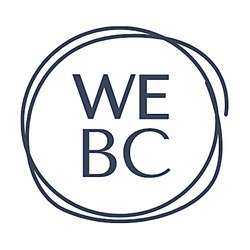
Open Innovation Program
At a glance
- Maximum amount : 6,000,000 $
- Open Date : January 16, 2023
- Closing date : February 10, 2023
- Utilities
- Manufacturing
- Professional, scientific and technical services
- British Columbia
- For-profit business
- All revenue ranges
- All organization sizes
- Startups
Overview
Get a non-repayable grant up to $6 million for an innovative project, new technology or business process that helps reduce GHG emissions and is ready to scale.
Activities funded
The Open Innovation Program provides funding for initiatives that develop and scale clean energy technologies made in British Columbia. The activities supported under this program are focused on solutions that drive the world towards a net-zero carbon future.
- Advancement and commercialization of low carbon hydrogen technologies.
- Development of renewable natural gas solutions.
- Innovation in battery technology and energy storage systems.
- Projects focused on carbon management strategies.
- Creation and scaling of bioenergy, biofuels, and synthetic fuels technologies.
Eligibility
Eligibility for this grant is determined by specific requirements related to the project's focus and readiness level.
- The project must involve the development, commercialization, or scaling of clean energy technologies created in B.C.
- The project should aim to contribute towards a net-zero carbon future.
- Projects must fall within one or more of the following areas: Low carbon hydrogen, Renewable natural gas, Battery technology and energy storage, Carbon management, Bioenergy, biofuels, and synthetic fuels.
- The project must be at a Technology Readiness Level (TRL) between 4-9.
Who is eligible?
This grant is aimed at supporting the development and scaling of clean energy technologies by organizations based in British Columbia.
- Companies engaging in the development of low carbon hydrogen technologies.
- Organizations focusing on renewable natural gas solutions.
- Enterprises working on advancements in battery technology and energy storage.
- Firms specializing in carbon management strategies.
- Entities involved in bioenergy, biofuels, and synthetic fuels innovations.
Who is not eligible
Eligibility details for the grant do not specify any specific types of companies that are not eligible for the funding opportunity.
However, common exclusion criteria for funding opportunities typically relate to the following types of companies:
- Non-Canadian companies
- Non-clean energy technology companies
- Companies with projects not aligned with the specified priority areas
Eligible expenses
This grant focuses on advancing clean energy technologies that are crucial for achieving a net-zero carbon future. The eligible projects are centered around key areas of innovation in the energy sector.
- Development and scaling of low carbon hydrogen technologies.
- Advancement of renewable natural gas solutions.
- Innovation in battery technology and energy storage systems.
- Initiatives for effective carbon management solutions.
- Progression of bioenergy, biofuels, and synthetic fuels technologies.
Eligible geographic areas
This grant is limited to companies involved with the B.C. Centre for Innovation and Clean Energy (CICE) in British Columbia, Canada. The eligible location reflects the funding body's focus on advancing clean energy technologies within this specific region.
- Companies must be based in British Columbia, Canada.
Selection criteria
The evaluation and selection criteria for the B.C. Centre for Innovation and Clean Energy's 2023 Open Call for Innovation are based on the following factors:
- Demonstration of technological innovation and advancement
- Potential for commercialization and scalability
- Impact on accelerating the transition to a net-zero carbon future
- Technology Readiness Level (TRL) between 4-9
How to apply
Review Open Call Details
- Read through the CICE Open Call information to understand the objectives and focus areas.
- Ensure that your project aligns with the specified technology readiness levels (TRL 4-9).
Participate in Q&A Session
- Watch the recorded Open Call Q&A session to gain insights into the application process.
- Download and review the Q&A session slides for additional guidance.
Draft Proposal
- Prepare a detailed project proposal covering project description, objectives, and impact potential.
- Include information on how the project fits within the focus areas like low carbon hydrogen or bioenergy.
Compile Required Documentation
Follow CICE on Social Media
Submit Proposal
- Once the application is completed, send it to the appropriate CICE contact point before the deadline.
- Ensure the application is filled completely and reviewed for completeness and accuracy.
Confirmation
- Await notification of receipt and evaluation timeline from CICE.
- Keep a record of submission details for future reference.
Additional information
Here are additional relevant details for this grant:
- The grant aims to accelerate the world towards a net-zero carbon future by supporting clean energy technologies.
- The total funding available through this grant is up to $6 million.
- Selected companies were scheduled to be notified by June 1, 2023.
- The B.C. Centre for Innovation and Clean Energy remains interested in hearing about innovative projects post-deadline via email.
Contacts
Frequently Asked Questions about the Open Innovation Program Program
What is the Open Innovation Program?
How much funding can be received?
What is the deadline to apply?
Who is eligible for the Open Innovation Program program?
What expenses are eligible under Open Innovation Program?
Who can I contact for more information about the Open Innovation Program?
Where is the Open Innovation Program available?
More programs like this

Business Scale-up and Productivity in British Columbia
Pacific Economic Development Canada (PacifiCan)
Genome British Columbia — GeneSolve Program
Genome British Columbia
Genome British Columbia — Sector Innovation Program
Genome British Columbia
Funding for the Fraser River Freshwater Ecosystem Initiative
Canada Water Agency (CWA)
WeBC — Business Mentoring and Peer Groups
WeBC
Innovate BC — BC Fast Pilot program
Government of British Columbia
Entrepreneurship@UBC Hatch
University of British Columbia
SFU 4D LABS
Simon Fraser University 4D LABS
CICE 2023 Directed Call for Innovation — Measurement, Monitoring and Verification (MMV) of Carbon Management
Government of British Columbia